Madera is en route to my next main stop, Creel, the hangout for exploring North Mexico’s fabled Copper Canyon – Baranca del Cobre. Keen to avoid the behemoth 18 wheelers that hog Mexico´s main roads , we´ve been doing our best to keep to backroads to get there, and in doing so unearthed a stunning section of rough, dirt tracks between Nuevas Casas Grandes and Ejido el Largo. Which as it happens, is also the course for a yearly local mountain bike race.
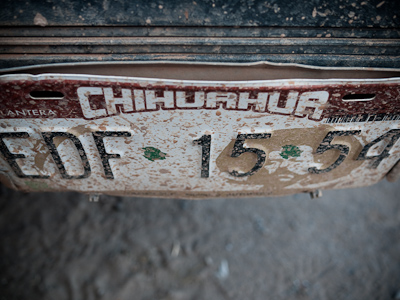
I just checked out a map of Mexico - and it's huge. In fact Chihuahua, the largest state in Mexico, is a little bigger than the UK. The state also played a key part in the Mexican Revolution of 1910, where revolutionary forces were led by Pancho Villa, a Mexican hero.
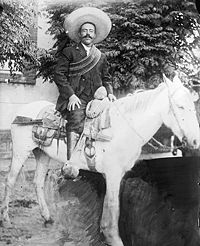
José Doroteo Arango Arámbul, or Pancho Villa, was one of the first Mexican revolutionary generals. Great taste in hats too.
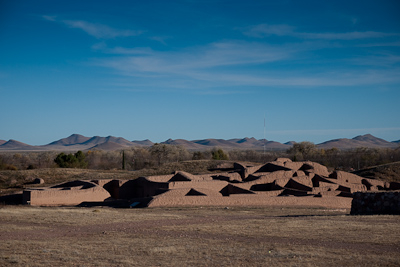
A little outside of Nuevas Casas Grandes lie the pre-Columbian ruins of Paquime, which date back to around 1200AD.
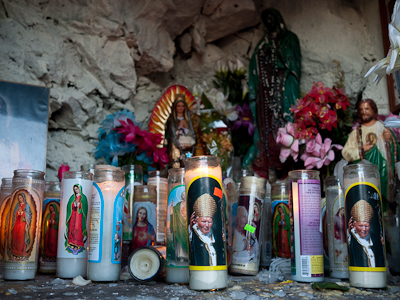
Catholicism is evident all around, in the profusion of churches and roadside shrines. Just out of Paquime, a footpath wound up a hill to a white stone shrine where candles burned to Guadeloupe. As we were leaving, an old Ford pickup pulled up and half a dozen kids hopped out of the back before the dust had even settled, and scampered up the hill to light some candles.
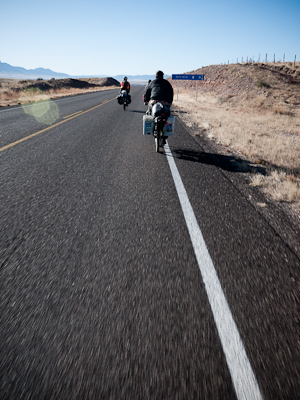
Chihuahua, rich in minerals, seems a relatively wealthy state, if all the roadbuilding is anything to go by. Our photocopied 1998 Guia Roja road atlas seems completely out of date. We were expecting a dirt track, so this spotless, empty new road came as something of a surprise.
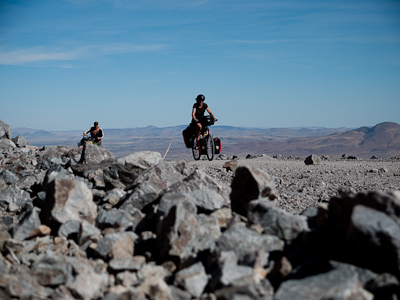
Until 12kms in, where the surface deteriorated. Apparently it wasn´t quite finished, not that there was a sign to tell you... After some negotiations with the road crew we continued upwards, battling dust and wind, riding under an archway of Caterpillar diggers that froze momentarily as we passed by beneath them.
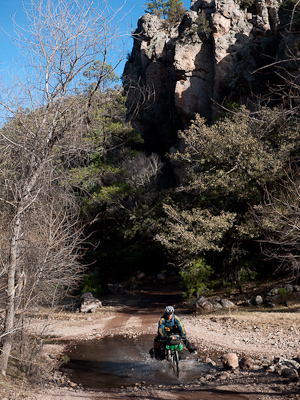
It was good to be back on a dirt track again, fording rivers that would be knee deep in the height of summer. Plans are to pave this whole road within the next 5 years, to develop the area's 'ecotourism' potential, so ride it soon...
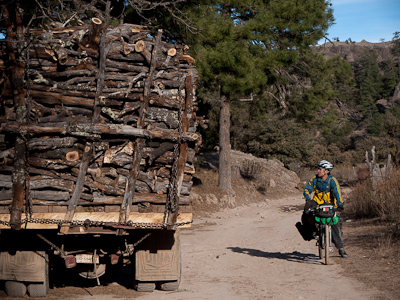
Jeff stops to check directions with some locals, driving a truck loaded to bursting point with firewood.
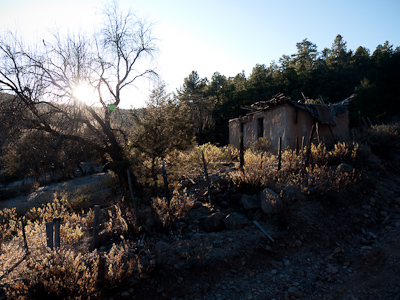
We camped on the edge of Colonia Hernandez, a small village requisitioned in the revolution, set in a peaceful river valley. There was no electricity; horses were tethered up next to old pickups, and mud brick houses with corrugated rooves pumped out thick smoke through slender chimneys. An elderly man with a thick white moustache and a wicker cowboy hat, looking rather resplendent on his white horse, came over to check us out.
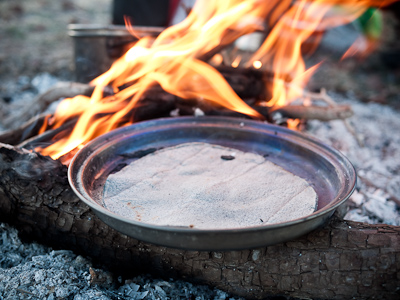
The days are hot but the mornings are cold - nothing beats a breakfast of corn tortillas warmed over the campfire.
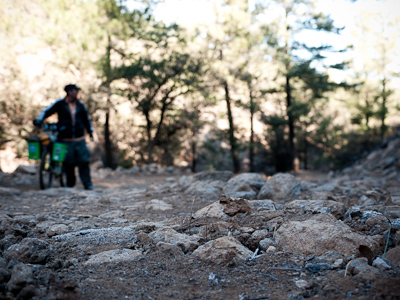
In places, it was as rough and tumble as they get - long stretches of rocks and boulders to negotiate. Now that I'm down to just a couple of rear panniers, riding this kind of stuff is a lot easier.
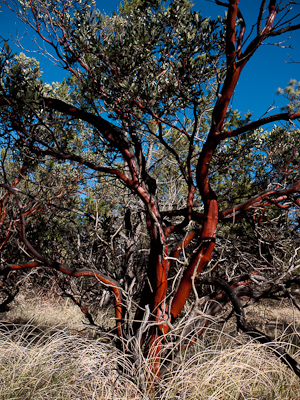
A manzanita tree, with its smooth red bark and twisting branches, set amongst Scrub Oak and Juniper.
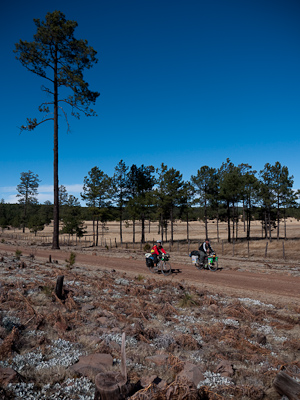
Eventually the track improved as it emerged into a clear cut, and the grade softened as we followed a ridgeline.
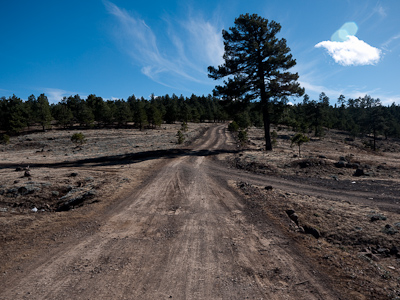
We saw one vehicle that day. In fact, at times it felt like we were on a continuation of the Great Divide Mountain Bike Route.
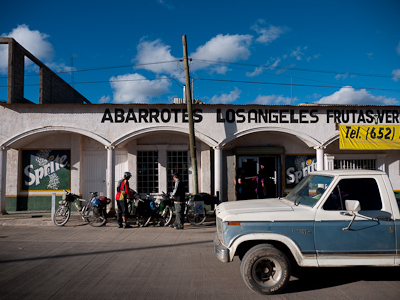
Until we dropped down into the thriving metropolis of Ejido el Largo, pausing to renew supplies. A dusty settlement built around logging, Ejido el Largo is apparently one of many places in the north ´run´ by the cartels.
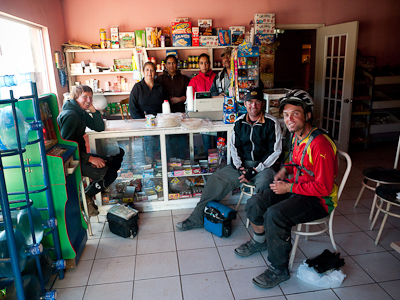
But as a tourist, this dark, corrupt side of Mexico seems a world away. Whether it's a wave, a roadside conversation or the gift of an apple freshly plucked from an orchard, Mexicans have been incredibly warm and hospitable. No sooner had we entered this small grocery store than we were sat down, invited to cups of coffee and a round of pastries. Later that day a local mountain biker, Jesus, invited us over to his place, having heard that we'd yet to sample Mexican tamales. There, as we poured over photos of the local mountain bike race he helped to organise, we tucked into a platter of these tasty, spicy treats - corn dough stuffed with salsa and meat, packaged in a corn husk and served around Christmas or festival times. Delicious.
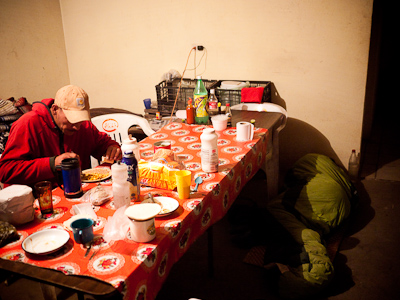
Just to underline the incredible Mexican hospitality we´ve experienced, we also met Carlos, who'd once lived in Colorado and was was working locally with a road crew. He invited us in to their hangout, where many burritos were chomped down and a tequila bottle was cracked open. There´s Jeff fast asleep in the morning.
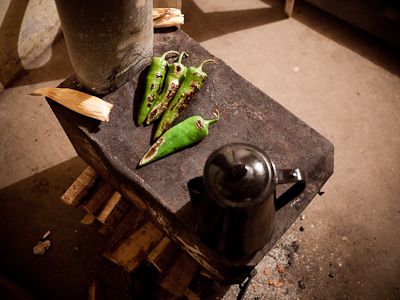
Cooking chillies on the homemade woodburner, ready to be stuffed with cheese and spices. Mexican food is good...
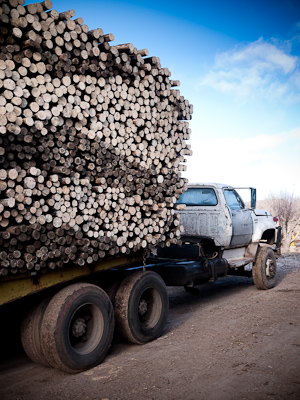
Very much a town built around the logging industry, old and dilapidated trucks struggled under vast piles of wood.
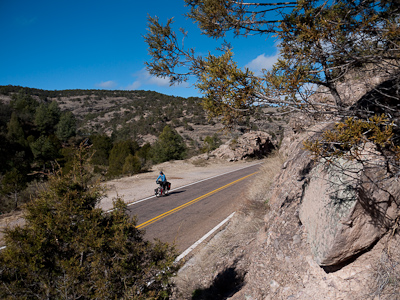
Just as we did under our panniers. Back on pavement, the road rolled it's way up and down through the mountains, putting us through our paces.
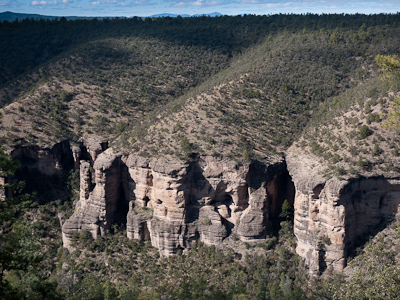
35 kilometres out of Ejido el Largo, we stopped at the pre Columbian cave dwellings known as Cuaranta Casas, where forty houses are chiselled out of the cliffs above the Garabato river.
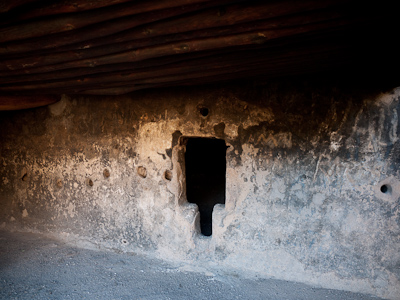
The site was officially closed for maintenance but after Spanish speaking Jeff sweettalked the caretaker, we hiked down into the Huapoca Canyon to check them out. Reflecting its socialist tendencies, historical sites like Paquime and Cuarenta Casas are free, keeping Mexico's heritage inclusive to everyone.
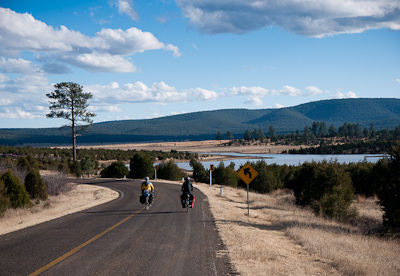
Back on the road, we made a hasty dash for Madera, toiling up and down the rolling Sierra Madre mountains, an extension of the Southern Rockies. Madera, which means wood, is set at 2100m and is another town that relies on the logging industry.
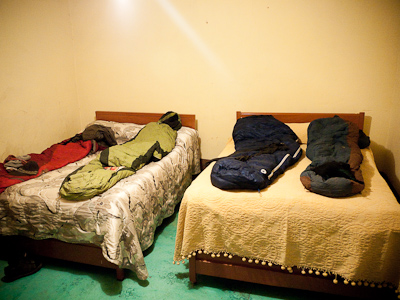
Our reward was a fine dinner of fresh fish and some luxurious digs at Hotel Madera. There wasn´t much more to this room than two wonky beds. Not even a power source. Still, that's what you get for 200 pesos, or about 3 dollars each. Time for a good night's rest...
The Need to Know Section
Distance – 210km
Road conditions – Between Casas Grandes and Ejido El Largo – some 130kms in distance – it’s wonderfully rough, hilly and remote. But there´s a five year plan underway to pave this section. The rest of the way is well paved backroads.
Cheap digs – 200 pesos for a big, basic room at Hotel Madera, and plentiful camping in the forests.
Food – Nothing until Ejido El Largo, then no problems.
Internet – A couple of cafes in Madera on the main street (next to a bank), around 10 pesos an hour.
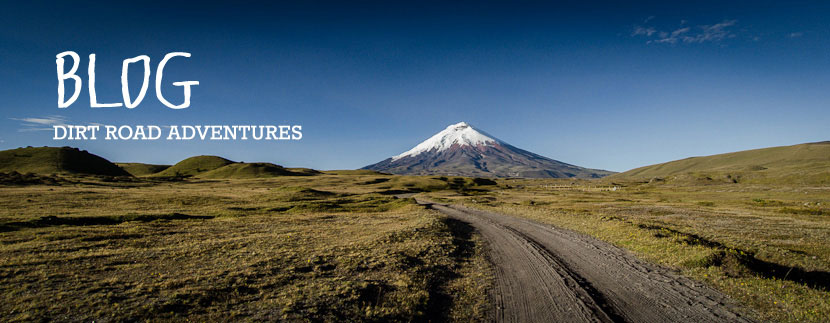
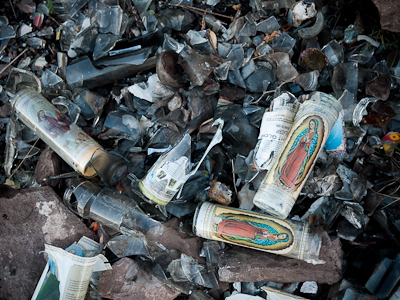
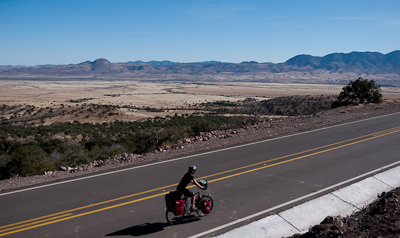
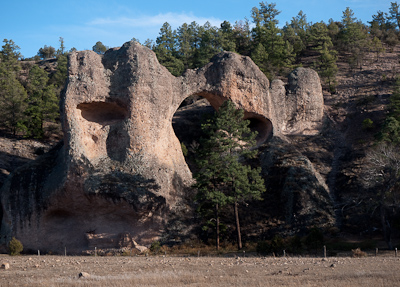
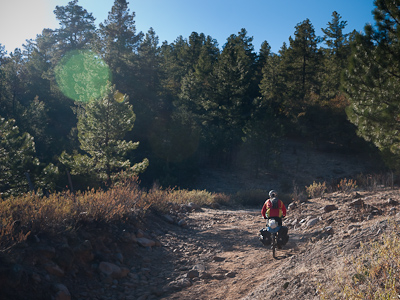
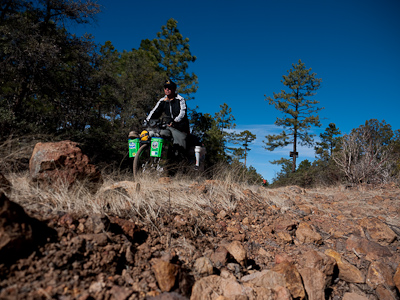
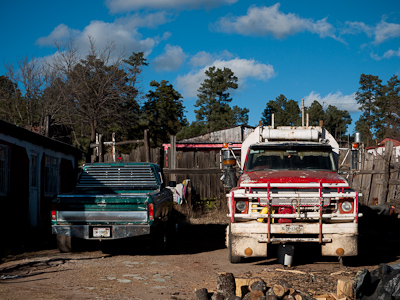
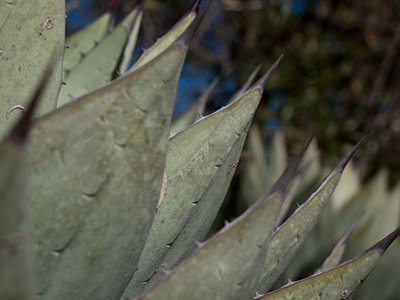
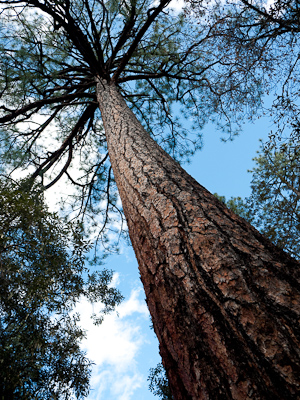

I like that you’ve started a “Need to Know Section”
Hey Matt, hope the riding is going well. Chilly up here in Creel, headed to Urique tomorrow.